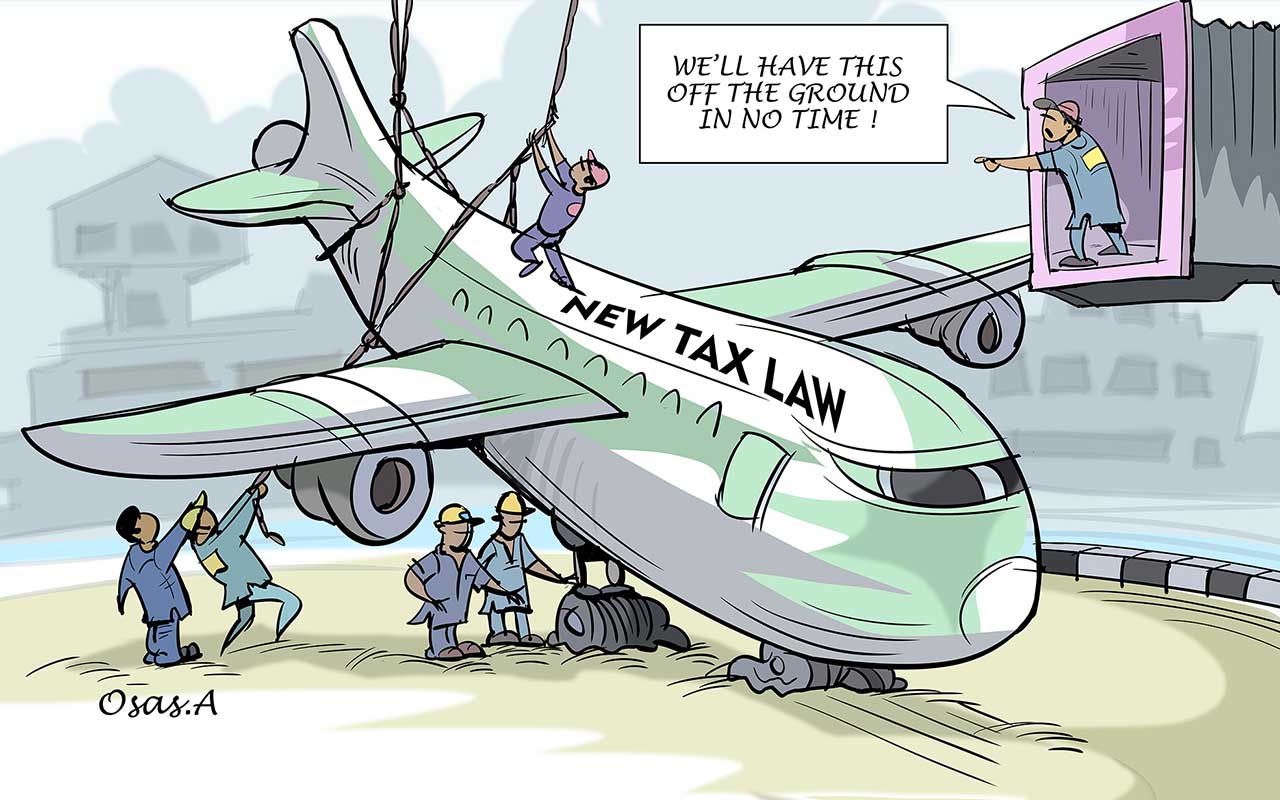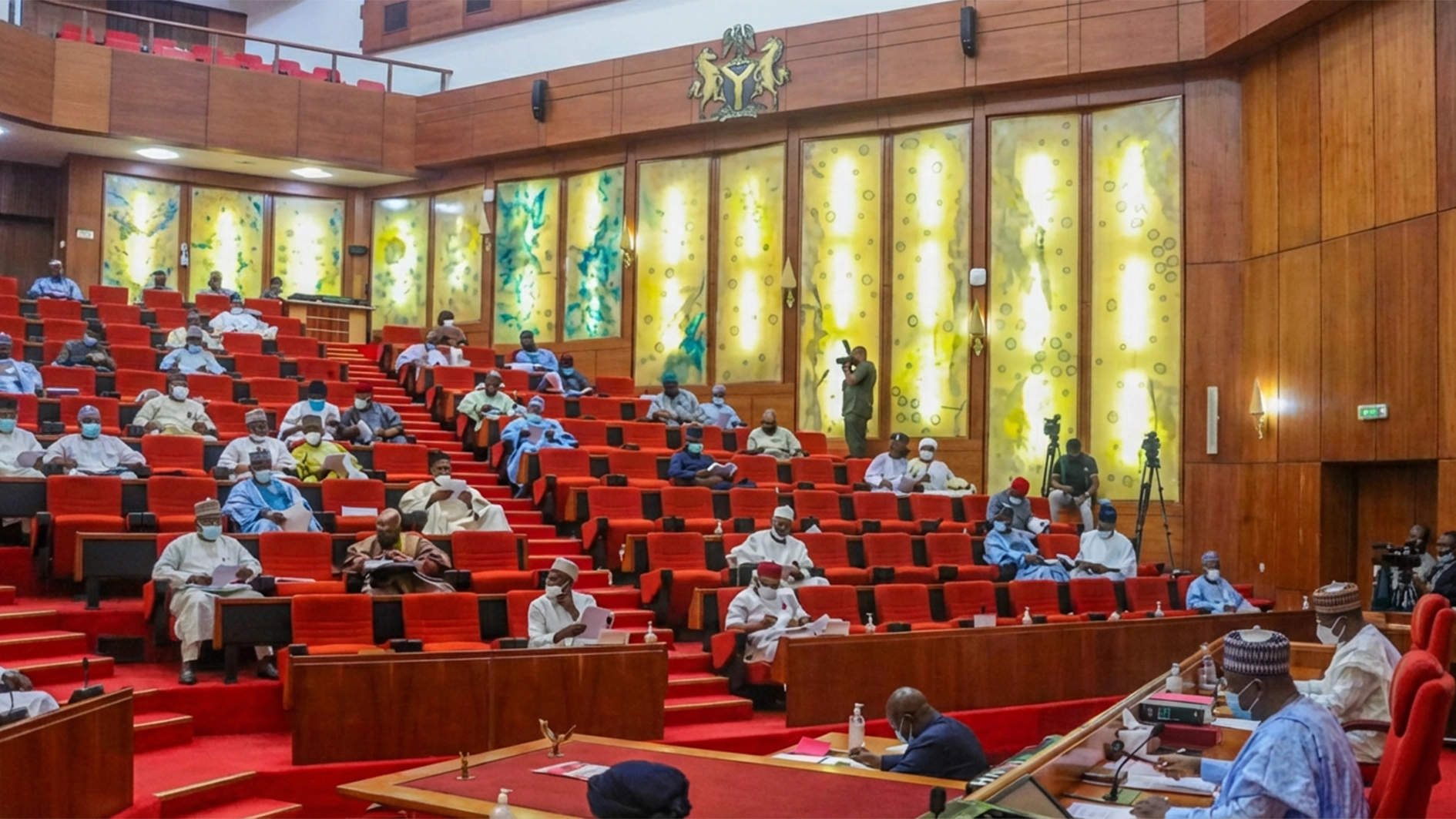• Experts warn of dual-risk fiscal turmoil
• Growth downgraded to 3%
• Inflation may balloon to 37% next year
The chances of keeping fiscal deficit at a manageable level are becoming increasingly elusive as the International Monetary Fund (IMF) places a $67 per barrel bet on crude, which the Federal Government expects could aid the realisation of its N55 trillion oversized budget at an average price of $75 per barrel.
Crude, the IMF said yesterday, in the World Economic Outlook (WEO) at the ongoing Spring Meetings in Washington, DC, would average $66.94 this year and tumble down to $62.38 next year.
The projections are a significant markdown of FG’s budget revenue estimates for both this and next year, as outlined in the current Medium-Term Expenditure Framework and Fiscal Strategy Paper (MTEF/FSP).
The bearish stance is a call on President Bola Tinubu and his national economic managers to roll up their sleeves for a more aggressive non-oil revenue mobilisation.
The government would also need to bite the bullet and clinically review its spending options for a significant cut of non-essential items.
Sadly, with the election year eve about eight months away, the administration faces an intense political pressure, which, more than economic exigency, may be an overriding influence on public expenditure priority.
Still, to reasonably grow non-oil earnings, which the government repeatedly said it is committed to, infrastructure, agriculture and industrial support require a big push intervention, which the government cannot fund.
Balancing the conflicting interests in resource allocation may pose a dilemma to an administration that is under pressure to satisfy political interests and pull the economy out of the woods at the same time.
The consequences of a rising uncertainty of the international market for the country’s revenue may also be robbing off on the growth prospect, as well as the same IMF has marked down the output growth projection to three per cent in the WEO report.
A lower growth rate pulls the economy farther from the self-set target of $1 trillion. A rebased gross domestic product (GDP), a project now more in uncertainty, may raise the output level beyond the current $250 billion, but a 10 per cent growth, some experts have said, and a fairly stable naira would be required to achieve a $1 trillion target in five years.
But sadly, falling oil prices detract from both stable naira and nominal GDP growth, highlighting the severity of a bearish oil market for Nigeria’s fiscal position.
While the IMF official reeled out its latest projection yesterday, crude actually sold far less than $70 despite what appears as a breather to the tariff imposition crisis.
From corporate boardrooms to political offices, the global community lost its fragile confidence in the stability of the economy when President Donald Trump started playing the protectionist card. Even with some retractions, the trust has not returned, causing sustained bearish trading across asset classes.
But Nigeria has sufficient internal challenges to contend with. Less than a week ago, the IMF, in its Article IV report, scored the country high on market reforms but warned that they have yet to add up to welfare gains.
“The Nigerian authorities have taken important steps to stabilise the economy, enhance resilience, and support growth. The financing of the fiscal deficit by the central bank has ceased, costly fuel subsidies were removed, and the functioning of the foreign exchange market has improved. Gains have yet to benefit all Nigerians as poverty and food insecurity remain high,” the IMF said.
It warned that the outlook is marked by “significant uncertainty” as elevated global risk sentiment and lower oil prices trouble the economy, even with an improved position owing to reforms.
It noted that a neutral fiscal stance would support monetary policy to bring down inflation. But the advisory is far from the reality, even as fiscal authority appears to be the major source of over-bloated money balances that have constrained price stability.
For the first time last quarter, money supply ballooned to over N110 trillion, raising worries about a possible breakdown of inflation control and possible excessive socialisation of public officials’ indiscipline.
Indeed, a resurging inflation is sending shockwaves. Whereas the rebased consumer price index (CPI) puts the inflation rate at less than 25 per cent, the IMF also said the headline inflation would average 26.4 per cent this year and spike to 37 per cent next year in the report that draws cautious attention to the country’s macroeconomic performance.
The inflation targets, even if overstated, could draw a string of price-setting and consumption behaviours that could radically change inflation expectations in the coming months.
To safeguard key spending priorities, it is imperative that fiscal savings from the fuel subsidy removal are channelled into the budget. In particular, adjustments should protect critical, growth-enhancing investments while accelerating and broadening the delivery of cash transfers under the World Bank-supported program to provide relief to those experiencing food insecurity.
“A tight monetary policy stance is required to firmly guide inflation down. The Monetary Policy Committee’s data-dependent approach has served Nigeria well and will help navigate elevated macroeconomic uncertainty. Announcing a disinflation path to serve as an intermediate target can help anchor inflation expectations,” the IMF had pointed out in its Article IV.
According to the IMF’s April 2025 outlook, the growth projection is a 0.2 percentage point reduction from the Fund’s previous projection of 3.2 per cent.
In sub-Saharan Africa, the report said economic growth in the sub-region is expected to decline slightly from 4.0 per cent projected in 2024 to 3.8 per cent in 2025, before a possible gradual recovery to 4.2 per cent next year.
The report said: “Among the larger economies, the growth forecast for Nigeria is revised downward by 0.2 percentage point for 2025 and 0.3 percentage point for 2026, owing to lower oil prices.”
The IMF noted that after enduring a prolonged and unprecedented series of shocks, the global economy appeared to have stabilised, with steady yet underwhelming growth rates.
But the landscape has indeed changed as governments around the world reorder policy priorities and uncertainties have climbed to new highs amid uncertainties occasioned by Trump’s administration, it stated.
In his reaction, an investment banker, Tolulope Alayande, said that the IMF projections did not come as a surprise to discerning economists.
“I said even before the budget we passed by the National Assembly that the $74 per barrel projection would not fly. One, the economic trends do not support that. Second, Nigeria predicts up to two million barrels per day or anything close to that?”
He argued that the government needs to deprioritise its focus away from borrowing internally or externally.
He said: “The government must cut its costs according to its earnings. Nigeria is broke, and there is no money coming in. The government must first cut the cost of government. This is the time to implement Steve Oronsaye’s report. The number of government agencies and parastatals needs to come down. Workers need to be reduced.”
Chief Executive Officer of the Centre for the Promotion of Private Enterprises (CPPE), Muda Yusuf, warned that the dual risks of declining oil prices and underperformance in production could derail the government’s revenue projections and push the economy into deeper debt if not urgently addressed.
Yusuf noted that crude oil prices, already impacted by mounting uncertainties in the global economy, particularly ongoing tariff tensions between major economies, are beginning to trend below the initial projections.
“The crude oil price has been affected by uncertainties in the global economy, triggered by the tariff issue. We are not sure how it will end, but clearly, it is not a good sign. The projection was initially for $70 per barrel, but we are now looking at $66. This shift alone introduces significant pressure on revenue inflows.
“Compounding the problem is Nigeria’s inability to meet its oil production target. The 2025 budget assumes a daily production of 1.78 million barrels, yet current figures hover between 1.3 and 1.4 million barrels per day. This underperformance in oil output is a major risk to the revenue framework of the budget,” Yusuf said.
To navigate the looming fiscal strain, Yusuf advised a pragmatic approach anchored on adjusting expenditures in line with actual revenue realities.
“The reality of revenue should guide whatever we spend. After all, expenditures are also projections. If the revenue cannot support them, rather than increase our deficit or borrowing, it is better to cut down on our expenditures,” he said.
According to him, indiscriminate borrowing in the face of shrinking revenues would only serve to overheat the economy, worsen debt service costs, and strain macroeconomic stability.
He suggested that the federal government should rigorously review its spending plans and prioritise only the most essential and economically impactful projects.
He also emphasised the need to ramp up non-oil revenue, particularly through effective implementation of tax reforms. “If we can significantly improve revenue from non-oil sources, especially through tax reform, that may help compensate for the shortfall in oil earnings,” Yusuf said.
While noting that some reforms are already underway, he stressed the importance of being very conservative on spending and avoiding the temptation to continue spending based on unrealistic assumptions.
Yusuf also pointed out that with oil still accounting for a large portion of government revenue, the widening gap between expectations and reality could lead to higher borrowing unless swift fiscal adjustments are made.
Executive Director of Hallo Capital Management Limited, Dr Paul Uzum, said the government must urgently adjust its fiscal strategy to avoid deepening budget deficits and economic instability.
He argued that the government must adopt a two-pronged approach: short-term austerity and long-term structural reforms to reduce dependence on crude oil.
According to Uzum, the immediate focus should be on aligning public spending with actual revenue.
“In the short run, the government should trim its expenditure to align with its income, reduce government expenditure, eliminate wasteful spending, and suspend major capital expenditure projects for now,” he advised.
Uzum also emphasised the need for fiscal discipline, warning that continued spending based on unrealistic revenue projections could lead to unsustainable borrowing and inflationary pressures.
He further suggested that the government could generate additional revenue and conserve foreign exchange reserves by adjusting import duties.
“We need to raise import duties on luxury goods, including automobiles and all non-essential items. This will not only help reduce the outflow of scarce foreign exchange to other countries but also generate more revenue for the government,” he said.
To offset the revenue losses expected from falling oil prices, Uzum advocated for a deliberate increase in Nigeria’s crude oil supply to the international market. While global prices may be trending downward, higher export volumes could help mitigate the fiscal impact.
“If prices go down and quantity sold increases, it can help balance out the revenue shortfall,” he explained.
Looking beyond immediate measures, Uzum stressed the importance of long-term economic diversification.
He noted that Nigeria’s vulnerability to external shocks, particularly fluctuations in oil prices, underscores the urgent need to expand other sectors such as agriculture, manufacturing, solid minerals, and services.
“In the medium to long term, Nigeria must diversify its economy and reduce its dependence on crude oil. That is the only sustainable way to ensure stability and resilience in the face of global volatility,” he said.






